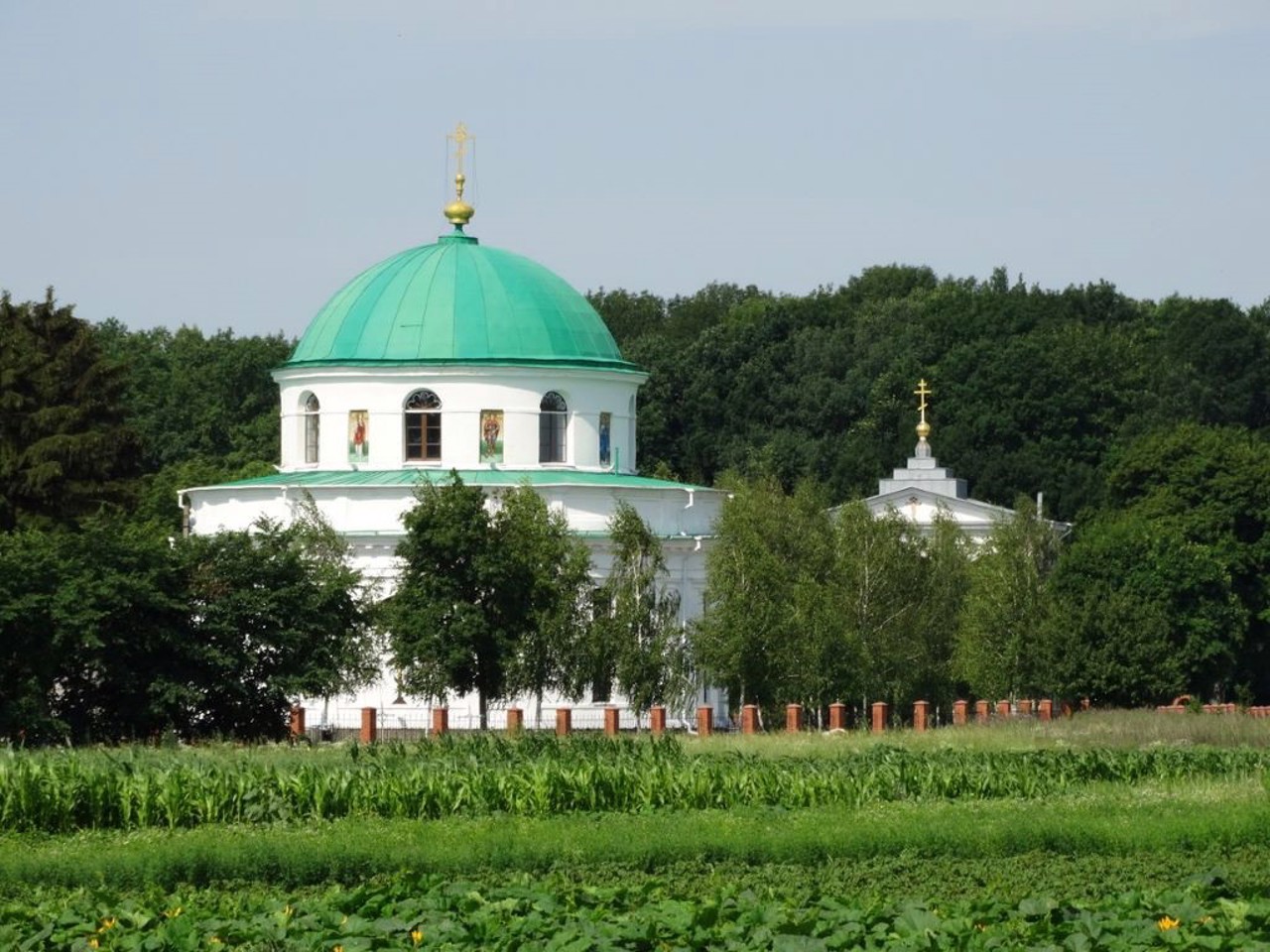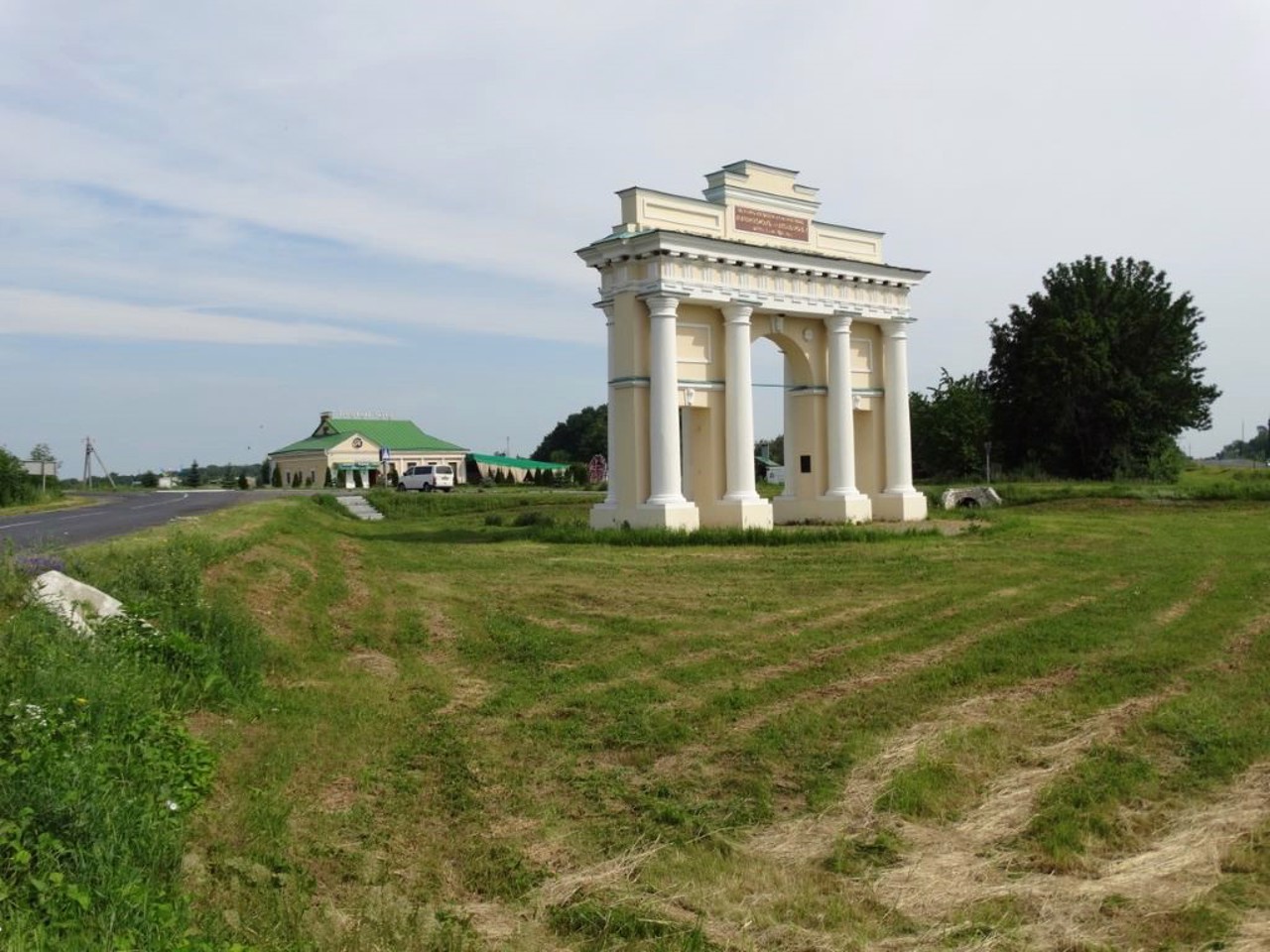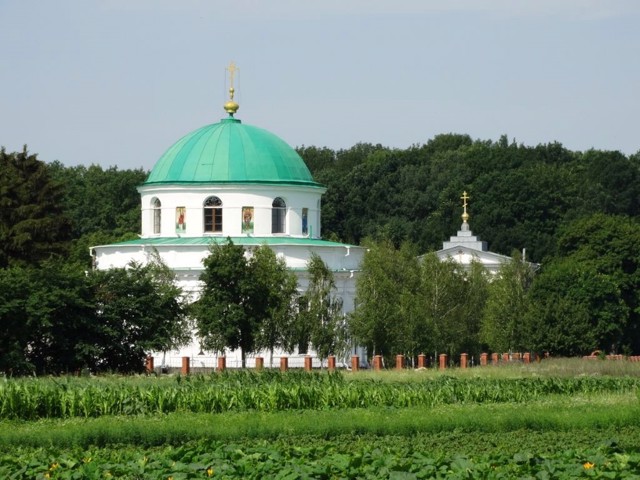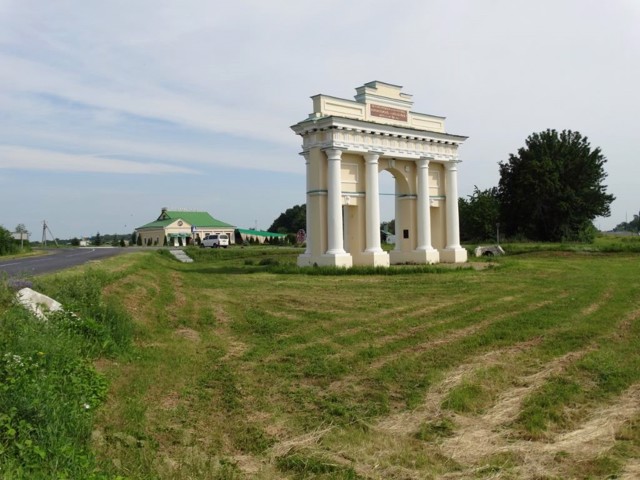Functional temporarily unavailable
General information about Dykanka
The historical town of Dykanka is located on the Vorskla River, 25 kilometers north of Poltava.
It became famous thanks to Mykola Hohol's story "Evenings on a farm near Dykanka".
From the 17th century, the Kochubey estate (now a landscape park) was located here, the most famous of which was the favorite of Oleksandr I, the first minister of internal affairs of Russia, Prince Vasyl Kochubey.
The Triumphal Arch in honor of the arrival of Tsar Oleksandr I, which is considered the hallmark of Dykanka, as well as four 800-year-old oaks of Kochubey, have been preserved.
Many places and architectural monuments are associated with various episodes and heroes of Hohol's works, an ent ...
The historical town of Dykanka is located on the Vorskla River, 25 kilometers north of Poltava.
It became famous thanks to Mykola Hohol's story "Evenings on a farm near Dykanka".
From the 17th century, the Kochubey estate (now a landscape park) was located here, the most famous of which was the favorite of Oleksandr I, the first minister of internal affairs of Russia, Prince Vasyl Kochubey.
The Triumphal Arch in honor of the arrival of Tsar Oleksandr I, which is considered the hallmark of Dykanka, as well as four 800-year-old oaks of Kochubey, have been preserved.
Many places and architectural monuments are associated with various episodes and heroes of Hohol's works, an entertaining historical and cultural complex was created on the site of the probable "Farm near Dykanka".
Історичне селище Диканька розташоване на річці Ворскла, в 25 кілометрах на північ від Полтави.
Прославилося завдяки повісті Миколи Гоголя "Вечори на хуторі біля Диканьки".
З XVII соліття тут було розташовано маєток Кочубеїв (зараз - ландшафтний парк), найзнаменитішим з яких був фаворит Олександра I, перший міністр внутрішніх справ росії князь Василь Кочубей.
Збереглася Тріумфальна арка на честь прибуття царя Олександра I, яка вважається візитною карткою Диканьки, а також чотири 800-річних дуби Кочубея.
Чимало місць та архітектурних пам'яток пов'язують з різними епізодами та героями творів Гоголя, на місці ймовірного "хутора поблизу Диканьки" створений розважальний істо ...
Історичне селище Диканька розташоване на річці Ворскла, в 25 кілометрах на північ від Полтави.
Прославилося завдяки повісті Миколи Гоголя "Вечори на хуторі біля Диканьки".
З XVII соліття тут було розташовано маєток Кочубеїв (зараз - ландшафтний парк), найзнаменитішим з яких був фаворит Олександра I, перший міністр внутрішніх справ росії князь Василь Кочубей.
Збереглася Тріумфальна арка на честь прибуття царя Олександра I, яка вважається візитною карткою Диканьки, а також чотири 800-річних дуби Кочубея.
Чимало місць та архітектурних пам'яток пов'язують з різними епізодами та героями творів Гоголя, на місці ймовірного "хутора поблизу Диканьки" створений розважальний історико-культурний комплекс.
Сплануй своє перебування у Dykanka
What to see and where to go in Dykanka
Tourist attractions and museums of Dykanka
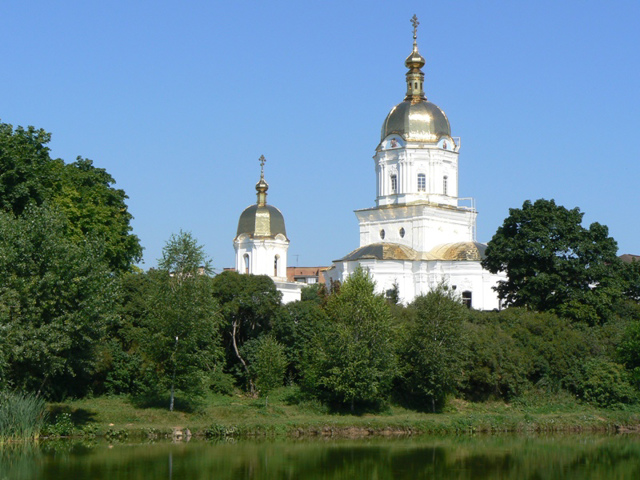
Holy Trinity Church
Temple , Architecture
The spectacular Holy Trinity Church in the late Baroque style was built in Dykanka on the site of an old wooden church.
It is located on the shore of a pond near the intersection of Ivana Mazepy Street and Troitska Street.
Construction was carried out in 1780 under the direction of the architect Mykola Lviv at the expense of Pavlo Kochubey of the Poltava Regiment of Bunchuzh. The temple is high, single-domed, with four semi-domes. It has the shape of a cross in plan. The floor was once paved with cast-iron tiles.
Legends closely associate the Trinity Church with the work of Mykola Hohol, who visited it many times. It is believed that this church was painted by the blacksmith Vakula in "The Night before Christmas": "...on the side wall, as you enter the church, Vakula painted a devil in hell, so disgusting that everyone spat when they passed by."
During the Soviet era, the temple was closed and looted, for some time it was used as a warehouse.
In 1993, the Trinity Church was restored and returned to the Orthodox Church.
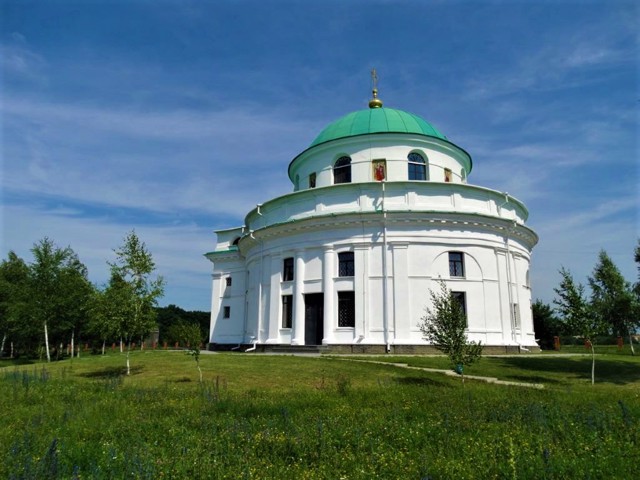
Saint Nicholas Church
Temple , Architecture
The Saint Nicholas Church in Dykanka is the ancestral temple-tomb of the Kochubey family.
The church was built in 1794 by count Viktor Kochubey on the territory of the count's estate, on the site of the old wooden church of the 17th century. According to legend, there was a stump on this place, on which the icon of Nicholas the Wonderworker appeared. Before this image, the mother of Mykola Hohol prayed for the health of her future son, named the child in his honor.
When constructing the Nicholas Church, the architect Mykola Lviv used the style of Moravian rotunda churches. The internal volume is covered by a complex double dome system with petals of glass frames that open in the summer. When singers in choirs sing, it seems that the sound comes from heaven. Also a unique system of air heating and ventilation of premises.
The stained oak iconostasis and fragments of the original painting have been preserved. The belfry above the gate is made in the style characteristic of Catholic churches.
In the basement there is a crypt with original sarcophagi, in which several generations of Kochubeys rest.
In Soviet times, a museum of atheism was opened in the premises. Currently, the Nicholas Church is active and is used by the UOC community of the Moscow Patriarchate.
Nearby, there are 800-year-old Kochubey oaks, planted at the entrance to the former princely estate from the Poltava side.
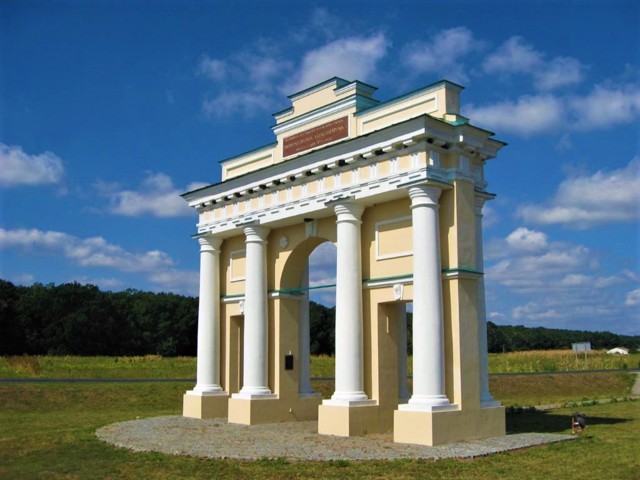
Triumphal Arch
Architecture
The Triumphal Arch in Dykanka is the village's business card, the only surviving civil structure of the Kochubey family estate.
The ceremonial entrance to the estate was decorated with a classic triumphal arch in honor of the arrival in Dykanka of Emperor Oleksandr I, whose close associate was Prince Viktor Kochubey.
Triumphal Arch was built by the architect Luyidzhi Ruska to commemorate the victory over Napoleon in 1812, it was decorated with copper bas-reliefs with battle scenes.
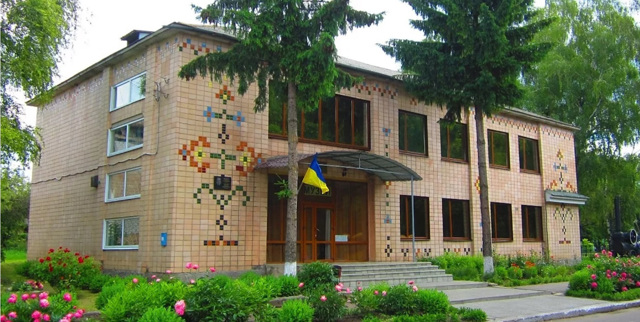
Historical and named after Dmytro Harmash
Museum / gallery
The exposition of the Dykanka State Historical and Local Lore Museum named after Dmytro Harmash is located in 9 halls and has 8,000 exhibits.
Among them is a handmade chest of Kochubey, decorated with a bizarre pattern, and which served as a treasury in the Trinity Church. Chest in the XVIII century. presented to Judge Kochubey Hetman Ivan Mazepa, but the legend attributes the masterful work on it to the blacksmith Vakula, Hohol's hero from "The Night Before Christmas".
You can see the Polovtsian woman, an old locomotive (steam tractor), Mykola Hohol's posthumous mask. Also presented are valuable finds from Scythian burials, household items, works of art by local masters.
Souvenir products are sold.
Employees of the Museum of Local Lore conduct tours of Dykanka.
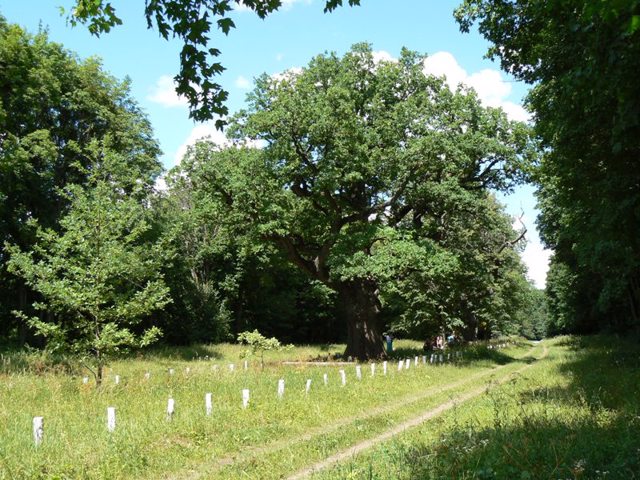
Kochubey Oaks
Natural object
Kochubey oaks in Dykanka are a monument of nature and history.
Three oaks growing in a row are the remains of a large oak avenue that decorated the entrance to the Kochubey manor on the ancient Poltava road, laid through the Mykolaivsky forest. Another oak tree stands alone, near the forest department. The age of the trees is about 800 years, the diameter of the trunk is 1.5-1.8 meters, the height is 20-22 meters.
According to legend, the oaks were planted by the Zaporizhzhia General Clerk Vasyl Kochubey and Colonel Ivan Iskra on Kochubey's birthday. Another legend tells that under one of these oaks, young Motrya Kochubey, the daughter of the general clerk, met her elderly lover, Hetman Ivan Mazepa.
Kochubey oaks were sung by the poet Pushkin in the poem "Poltava".
Reviews Dykanka
Geographical information about Dykanka
| {{itemKey}} | {{itemValue}} |
|---|---|
| Region |
Poltava |
